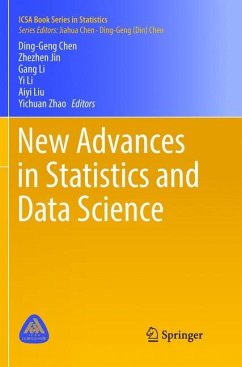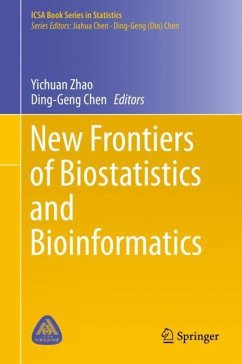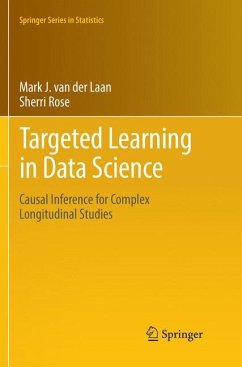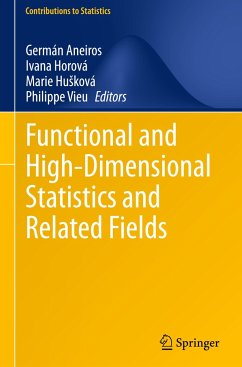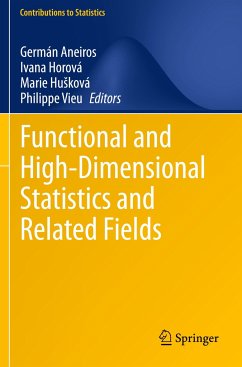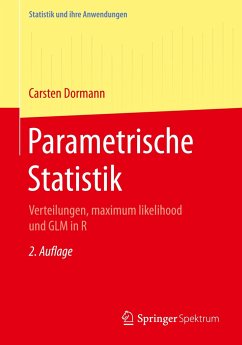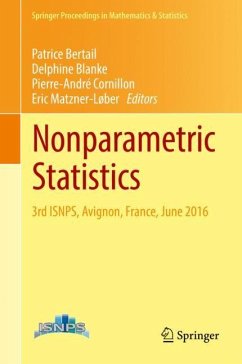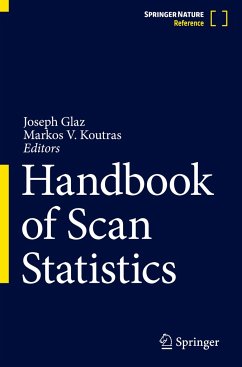Ding-Geng Chen is a Fellow of the American Statistical Association and is currently the Wallace Kuralt distinguished professor at the University of North Carolina at Chapel Hill. He was a professor at the University of Rochester and the Karl E. Peace endowed eminent scholar chair in biostatistics at Georgia Southern University. He is also a senior statistics consultant for biopharmaceuticals and government agencies with extensive expertise in Monte-Carlo simulations, clinical trial biostatistics and public health statistics. Professor Chen has more than 100 referred professional publications, has co-authored and co-edited six books on clinical trial methodology, meta-analysis and public health applications, and has been invited nationally and internationally to give speeches on his research. Professor Chen was honored with the "Award of Recognition" in 2014 by the Deming Conference Committee for highly successful advanced biostatistics workshop tutorials with his books. Zhezhen Jin is a Professor of Biostatistics at Columbia University. His research interests in statistics include survival analysis, resampling methods, longitudinal data analysis, and nonparametric and semiparametric models. Dr. Jin has collaborated on research in the areas of cardiology, neurology, hematology, oncology and epidemiology. He is a founding editor-in-chief of Contemporary Clinical Trials Communications, serves as an associate editor for Lifetime Data Analysis, Contemporary Clinical Trials, and Communications for Statistical Applications and Methods, and is on the editorial board for Kidney International, the Journal of the International Society for Nephrology. Dr. Jin has published over 150 peer-reviewed research papers in statistical and medical journals, and is also a Fellow of the American Statistical Association. Gang Li is a Professor of Biostatistics and Biomathematics at the University of Californiaat Los Angeles (UCLA) and the Director of UCLA's Jonsson Comprehensive Cancer Center Biostatistics Shared Resource. His research interests include survival analysis, longitudinal data analysis, high dimensional and OMICs data analysis, clinical trials, and evaluation and development of biomarkers. He has published over 100 papers in a wide variety of prestigious journals such as the Annals of Statistics, the Journal of the American Statistical Association, the Journal of the Royal Statistical Society: Series B, Biometrika, and Biometrics. He is an Elected Fellow of the Institute of Mathematics, the American Statistical Association, and the Royal Statistical Society, as well as an Elected Member of the International Statistics Institute. He has been serving on the editorial board of several statistical journals including Biometrics. Dr. Li has been active in collaborating with researchers in basic science, translational research, and clinical trials,and has been a statistics Principal Investigator for multiple NIH funded projects. Yi Li is a Professor of Biostatistics and Global Public Health at the University of Michigan School of Public Health (UM-SPH). He is currently the Director of China Initiatives at UM-SPH, and served as the Director of Kidney Epidemiology and Cost Center at the University of Michigan from 2011-2016. Dr. Li is an Elected Fellow of the American Statistical Association, and is serving as Associate Editor for several major statistical journals, including the Journal of the American Statistical Association, Biometrics, the Scandinavian Journal of Statistics, and Lifetime Data Analysis. His current research interests are survival analysis, longitudinal and correlated data analysis, measurement error problems, spatial models and clinical trial designs. He has published more than 140 papers in major statistical and biomedical journals, including the Journal of the American Statistical Association, the Journal of the Royal Statistical Society: Series B, Biometrika, Biometrics and the Proceedings of the National Academy of Sciences. His group has been developing methodologies for analyzing large-scale and high-dimensional datasets, with direct applications in observational studies as well in genetics/genomics. His methodologic research is funded by various NIH statistical grants starting from 2003. As principal investigator, Dr. Li has been leading a multi-year national project with focus on developing new measures to evaluate all dialysis facilities in the United States, with the goal of improving renal health care, saving lives and reducing cost. Dr. Li is actively involved in collaborative research in clinical trials and observational studies with researchers from the University of Michigan and Harvard University. The applications have included chronic kidney disease surveillance, organ transplantation, cancerpreventive studies and cancer genomics. Aiyi Liu is a Senior Investigator in the Biostatistics and Bioinformatics Branch of the Division of Intramural Population Health Research within the National Institutes of Health's Eunice Kennedy Shriver National Institute of Child Health and Human Development. A fellow of the American Statistical Association, Dr. Liu has authored/coauthored about 90 statistical methodological publications covering various topics including general statistical estimation theory, sequential methodology and adaptive designs, and statistical methods for diagnostic biomarkers. Yichuan Zhao is a Professor of Statistics at Georgia State University in Atlanta. His current research interest focuses on Survival Analysis, Empirical Likelihood Method, Nonparametric Statistics, Analysis of ROC Curves, Bioinformatics, Monte Carlo Methods, and Statistical Modeling of Fuzzy Systems. He has published over 70 research articles in Statistics and Biostatistics research fields. Dr. Zhao has organized the Workshop Series on Biostatistics and Bioinformatics since its initiation in 2012. He also organized the 25th ICSA Applied Statistics Symposium in Atlanta as a chair of the organizing committee to great success. He is currently serving as editor, or on the editorial board, for several statistical journals. Dr. Zhao was an elected member of the International Statistical Institute.





